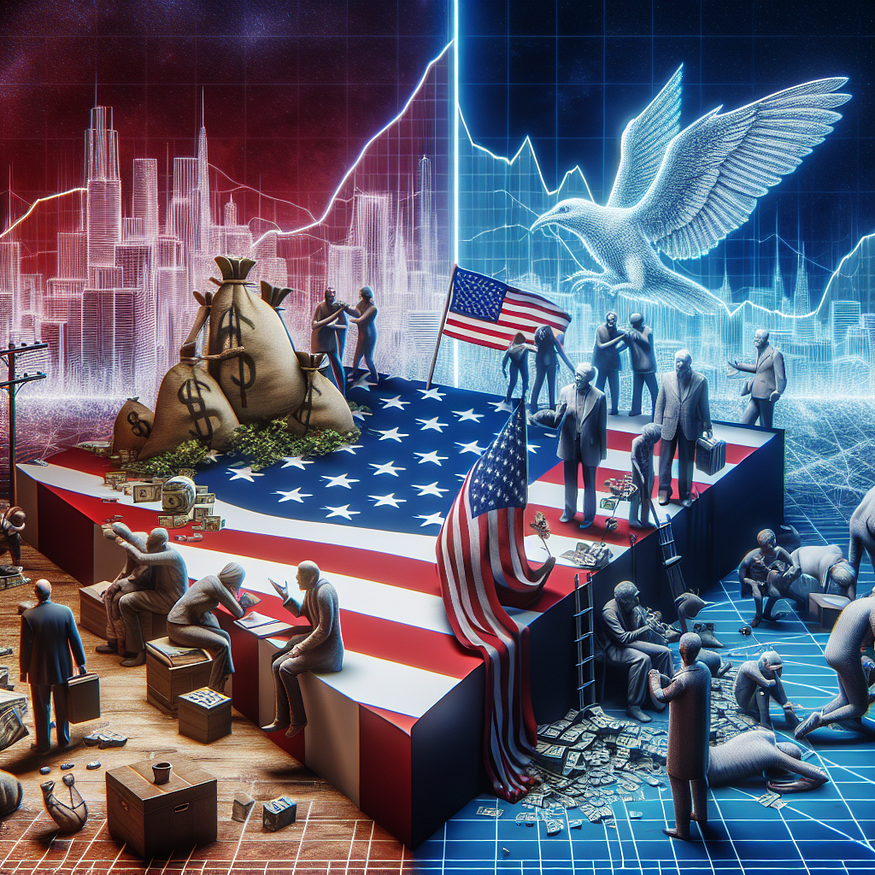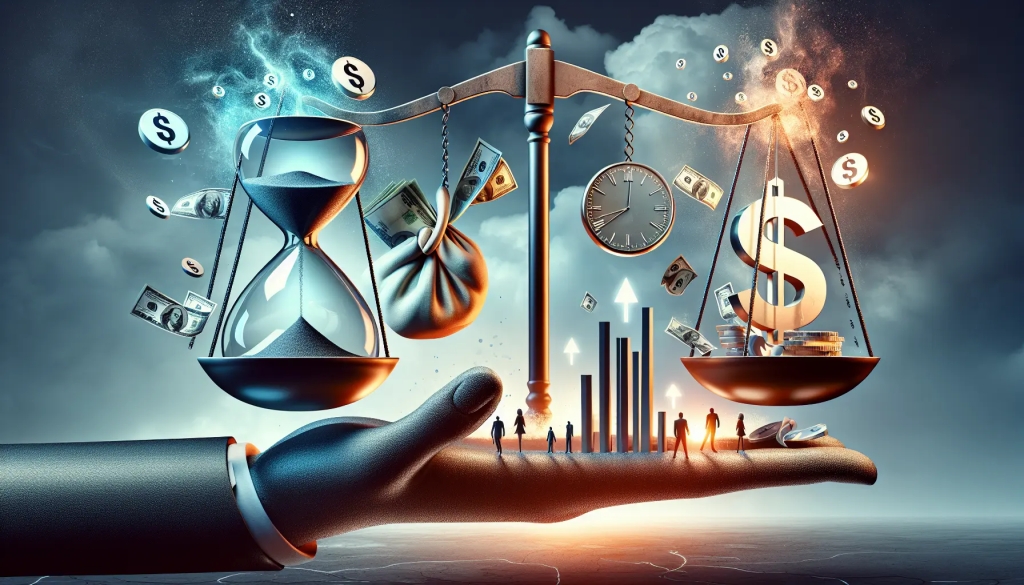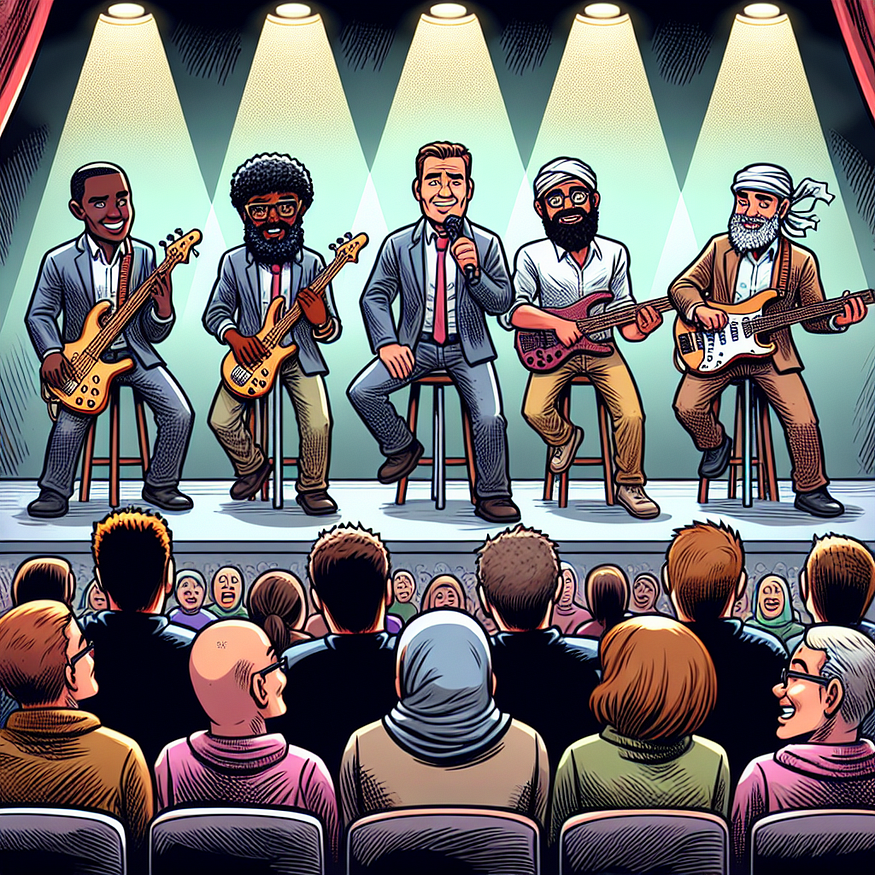David Sawin, 5/29/2024

Gone are the days when the American Dream was accessible to all with determination and hard work. In 2024, the middle class faces a grim reality that seems ripped straight from a dystopian novel. This deep dive reveals not just their struggles but why every American should be paying attention.
The erosion of the middle class isn’t just an economic issue; it’s a dire warning about the health of democracy itself. As wealth continues to concentrate in the hands of the few, social mobility grinds to a halt, stifling innovation and breeding disillusionment. This widening gap threatens the fabric of society, fueling divisions and eroding the collective sense of purpose that once propelled the nation forward. Without intervention, the American Dream may become an unattainable myth, leaving behind a legacy of broken promises and lost potential.

Diving Into the Crisis: Living on the Brink
The Dread of Every Due Date: Bills and Debts
Each morning begins with the mental tally of bills due and debts accumulating, overshadowing the dreams and plans that once painted a brighter future. The relentless rhythm of daily responsibilities drowns out the whispers of adventure that once urged a leap into the unknown. Mondays blur into Fridays, each indistinguishable from the last, except for the weight they add to shoulders already burdened by the cost of mere existence. Yet amidst this perpetual cycle, a flicker of determination survives, nurtured by the hope that persistence might eventually tear through the veil of financial fear, revealing a path where dreams aren’t just possible, but achievable.
Dining on a Dime: The Art of Survival
Nutritional choices become luxury when your budget demands a miracle to stretch until the next paycheck. The creativity in meal prep under financial strain paints a vivid picture of a day-to-day battle against hunger. However, this struggle fosters innovation. Leftovers are transformed into new dishes, and pantry staples become the backbone of meals — a testament to resourcefulness. It’s a scenario where every grain of rice carries weight, and the value of a shared dinner transcends its ingredients, becoming a moment of gratitude and connection. This culinary improvisation turns scarcity into a celebration of simplicity and survival, reminding us that sometimes, the most meaningful sustenance comes from making the most of what we have.

Broken Promises: The Political Betrayal
Election Dreams vs Harsh Reality
Election seasons swell with promises that seem to dissipate like mist once the ballots are counted. The disparity between campaign pledges and legislative action has never been starker. This disillusionment builds a chasm between the electorate and those elected, fostering a climate of skepticism and apathy. As trust in political figures wanes, the importance of accountability and transparency becomes paramount. To bridge this gap, there must be a concerted effort towards ensuring that promises made during the heat of campaigns are not only remembered but acted upon. The fabric of democracy relies on this trust, and without it, the very essence of public service is undermined.
The Unseen Wounds of Political Abandonment
Feeling overlooked by those in power, many in America’s middle class bear the brunt of political decisions with barely a nod from their leaders. This frustration fuels a growing sense of disenchantment, leading to a disconnect between the public and those elected to represent their interests. The promise of democracy feels diluted, as the voices of ordinary citizens seem to fade into the background, overshadowed by the influence of those with deeper pockets. Consequently, the middle class finds itself at a crossroads, questioning the very essence of their role in the democratic process and pondering the future of their place in American society.
Fun Bite-Size Section: Trump vs. Biden — A Metaphor for Our Times
In the political arena, Trump and Biden can be seen as metaphors for broader societal trends, creating a vivid picture of what we might become if left unchecked:
Trump: The Ego
- Trump’s inflammatory rhetoric and divisive actions symbolize how unchecked egos and divisiveness can lead to societal breakdown. His frequent attacks on democratic norms and judicial independence highlight the dangers of a self-destructive path driven by ego.
Biden: The Indifference
- Biden’s struggle against perceived ineffectiveness represents a society plagued by apathy and stagnation. This symbolizes an unwillingness to confront pressing challenges, leading to a lack of progress and innovation.
Lessons to Learn
If we do not heed these warnings, we risk steering our global society toward a future characterized by division and decay. The lessons here are clear:
Unity Over Division:
We must choose collaboration over conflict, embracing differences to build a stronger, more cohesive society.
Action Over Ignorance:
Proactive and informed engagement is critical. Ignoring warning signs can lead to severe, irreversible consequences for our communities and the world at large.
Let Trump and Biden’s contrasting political impacts serve as a clarion call to rouse us from complacency. We must actively engage in shaping our future, prioritizing unity, empathy, and purposeful action to navigate the myriad challenges ahead and transcend the pitfalls of ego and indifference.

The Harsh Bite of Economic Policies
The Escalating Cost of Being Alive
As the cost of basic necessities skyrockets, incomes stagnate, creating a chasm between living and merely surviving. This widening gap has driven many to the brink, pushing the boundaries of what families must do to keep afloat. Coupon clipping, second jobs, and community aid have become not just strategies but essential lifelines. Yet, despite these efforts, the struggle intensifies, casting a long shadow over the future, making dreams of financial stability seem more like distant mirages than achievable realities.
The Mirage of Adequate Employment
The promise of employment growth often only reveals jobs that scarcely cover living expenses, let alone provide a buffer against financial emergencies. Such economic precarity forces individuals to live paycheck to paycheck, creating a cycle of dependency on jobs that offer minimal security and no pathways for advancement. This perpetuates a system where the divide between the wealthy and the working class expands, making upward mobility a distant dream for many. As a result, the narrative of hard work leading to success becomes increasingly disconnected from reality, further entrenching societal inequalities.

Why You Should Care and What You Can Do
Understanding Empathy in Action
Discover why this struggle isn’t just their story; it’s an American narrative that affects us all, directly or indirectly, and why empathy can be a powerful catalyst for change. Empathy bridges divisions, fostering understanding across vast divides of experience and circumstance. In recognizing our shared human condition, we pave the way for dialogue, reconciliation, and, ultimately, progress. This story is a call to action, urging each of us to consider the roles we play in the lives of others and in the larger tapestry of society. By choosing empathy, we choose hope over despair, connection over isolation, and unity over division; a crucial step in crafting a more inclusive and compassionate world for generations to come.
Taking Steps: From Awareness to Impact
Learn how you can contribute to making a difference, from local volunteer work to advocating for policy changes. Every small action contributes to a wave of change. Start small by educating yourself on issues that matter to you, then share that knowledge with friends and family. This creates a ripple effect, inspiring others to join in. Remember, change doesn’t happen overnight, but each step forward is vital.

Let’s Wrap It Up
The daily battles of America’s middle and low-income families in 2024 might seem isolated, but they are intrinsically linked to the health of the nation. This isn’t just their fight; it’s our fight. Understanding their plight, the betrayals they’ve faced, and their unwavering resilience can inspire us all to action. Let’s not be bystanders in their story; instead, let’s become co-authors in crafting a brighter, more inclusive future.
To achieve this, we must first acknowledge the systemic barriers that hold them back: wage stagnation, healthcare inaccessibility, educational inequities, and housing insecurities. Only then can we work collectively — through policy reform, community support, and fostering economic opportunities — to dismantle these barriers. It’s time to prioritize the well-being and prosperity of every citizen, understanding that when the least among us thrives, the entire nation benefits.
Empowering those who have been marginalized requires a multi-faceted approach. We must champion laws that ensure fair wages, universal healthcare, equitable education, and secure housing for all. Simultaneously, it’s crucial to support local initiatives that provide immediate relief and long-term stability. This path forward demands the commitment of every individual, organization, and government entity. Together, we can create a society where equality isn’t just an ideal, but a reality for everyone.
FAQs
Q1: Why is it important for those not affected directly to care about this issue?
A1: Economic instability within any segment of society can have widespread effects, reducing overall consumer spending, affecting job growth, and potentially leading to increased social issues.
Q2: What are some ways I can help low and middle-income families?
A2: Engagement can range from volunteering and donating to local charities to advocating for policy reforms that address income inequality and healthcare.
Q3: How do political decisions impact middle and low-income families?
A3: Political policies directly affect employment opportunities, wage laws, healthcare access, and the cost of living, shaping the economic environment in which these families must navigate.
Q4: Can community support really make a difference?
A4: Yes, local initiatives and support networks can provide immediate relief and a sense of communal solidarity that can be incredibly empowering in times of need.
Q5: What is the impact of raising awareness about these struggles?
A5: Awareness fosters empathy, drives policy discussions, and mobilizes community action, contributing to long-term solutions that can significantly improve lives.





Leave a comment